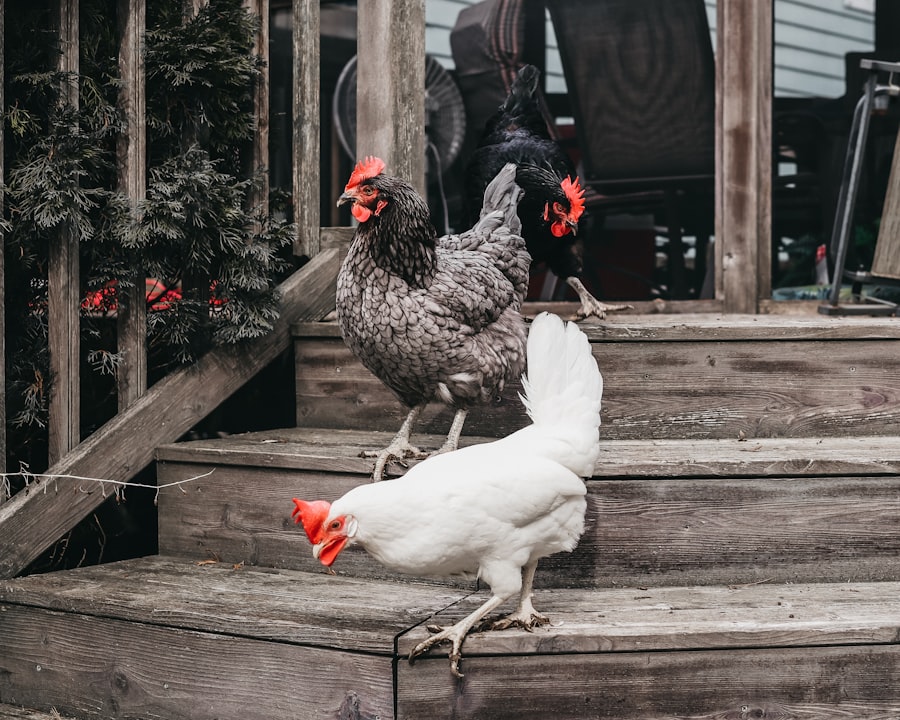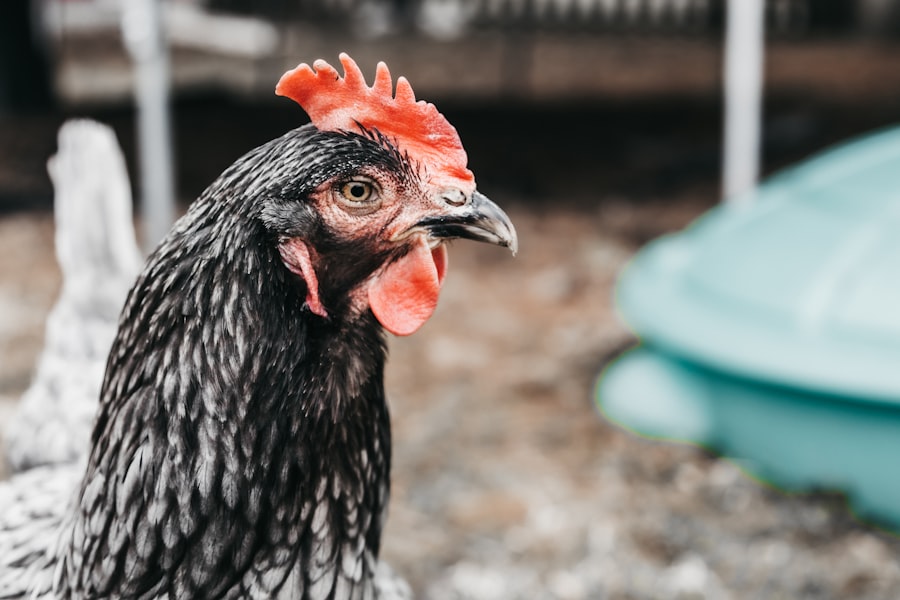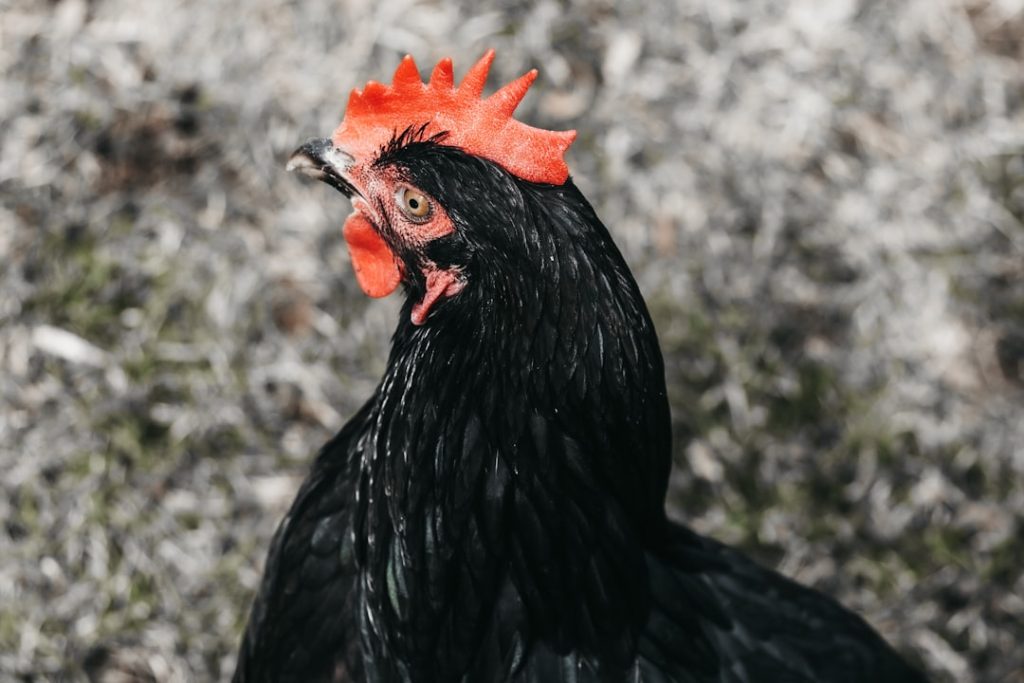Chicken coop management is a crucial component of poultry husbandry, encompassing various practices to ensure the health and productivity of chickens. This includes maintaining cleanliness, providing proper nutrition, and creating an optimal living environment. Coop management also involves decisions about confinement duration, which can vary based on factors such as weather conditions, predator risks, and the chickens’ age and health status.
Seasonal changes significantly impact coop management strategies. During winter, chickens may require extended periods in the coop for protection against cold temperatures and harsh weather. Conversely, summer months may allow for increased free-range time, provided adequate shade and water are available.
Recognizing signs that chickens need prolonged coop time is essential. These indicators may include extreme weather conditions, illness within the flock, or increased predator activity in the area. Monitoring chicken behavior and environmental factors helps inform these decisions.
To maintain chicken well-being during extended coop stays, farmers should ensure proper ventilation, provide enrichment activities, and maintain a clean living space. Regular health checks and appropriate feeding practices are also vital. Transitioning chickens from coop confinement to free-range requires a gradual approach.
This process involves introducing chickens to outdoor areas for short periods, gradually increasing duration, and ensuring they can easily return to the coop for safety and roosting.
Table of Contents
- 1 Factors to Consider when Determining How Long to Keep Chickens in the Coop
- 2 Seasonal Considerations for Chicken Coop Management
- 3 Signs that Chickens Need to be Kept in the Coop Longer
- 4 Tips for Keeping Chickens Happy and Healthy in the Coop
- 5 How to Transition Chickens from the Coop to Free Range
- 6 Conclusion and Recap of Best Practices for Chicken Coop Management
- 7 FAQs
Key Takeaways
- Proper chicken coop management is essential for the health and well-being of your flock.
- Factors to consider when determining how long to keep chickens in the coop include weather, predator activity, and the size of the coop.
- Seasonal considerations for chicken coop management include providing adequate ventilation in the summer and insulation in the winter.
- Signs that chickens need to be kept in the coop longer include illness, extreme weather, or predator threats.
- Tips for keeping chickens happy and healthy in the coop include providing ample space, fresh water, and a balanced diet.
Factors to Consider when Determining How Long to Keep Chickens in the Coop
Age of the Chickens
The age of the chickens is a significant consideration. Young chicks need to be kept in the coop for a longer period initially to ensure they are protected from predators and adverse weather conditions. As they grow older and become more independent, they can gradually be allowed more time outside the coop.
Breed of the Chickens
The breed of the chickens also influences how long they should be kept in the coop. Some breeds are more suited to free-ranging and can be let out of the coop for longer periods, while others may need more protection and confinement.
Coop Size and Outdoor Space
The size of the coop and the outdoor space available are also crucial factors. If the coop is spacious with ample room for the chickens to move around and engage in natural behaviors such as scratching and dust bathing, they can be kept in the coop for shorter periods. However, if the coop is small and lacks outdoor space, it may be necessary to limit their time outside to prevent overcrowding and stress.
Predator Presence
Finally, the presence of predators in the area should also be taken into account. If there are frequent sightings of predators such as foxes, raccoons, or birds of prey, it may be safer to keep the chickens in the coop for longer periods to minimize the risk of attacks.
Seasonal Considerations for Chicken Coop Management

Seasonal considerations play a crucial role in chicken coop management. During the winter months, it is essential to keep chickens in the coop for longer periods to protect them from cold temperatures, snow, and ice. Providing adequate insulation, heating, and ventilation in the coop is necessary to ensure the chickens remain warm and comfortable.
Additionally, access to fresh water is vital during winter, as it can freeze quickly if left outside. Therefore, keeping the chickens in the coop allows for better monitoring of their water supply and prevents it from freezing. In contrast, during the warmer months of spring and summer, chickens can be let out of the coop for longer periods to enjoy the sunshine and access to fresh grass and insects.
However, it is essential to provide shade and water outside the coop to prevent heat stress and dehydration. Furthermore, seasonal changes in daylight hours can also influence how long chickens should be kept in the coop. In winter, shorter daylight hours may limit the time chickens can spend outside, while longer daylight hours in summer allow for extended free-ranging time.
Signs that Chickens Need to be Kept in the Coop Longer
There are several signs that indicate chickens may need to be kept in the coop for longer periods. One common sign is aggressive behavior among the chickens. If there is excessive pecking, bullying, or fighting within the flock, it may be a sign that they need more space or enrichment inside the coop.
Keeping them confined for a while can help reduce stress and restore harmony within the flock. Additionally, if there are injuries or signs of illness among the chickens, it is advisable to keep them in the coop for observation and treatment until they have fully recovered. Another sign that chickens need to be kept in the coop longer is adverse weather conditions such as heavy rain, strong winds, or extreme heat.
These weather conditions can pose risks to the chickens’ health and safety if they are allowed outside the coop. Keeping them inside during such weather events can prevent stress, injuries, or heat-related illnesses. Furthermore, if there is an increase in predator activity in the area, it is wise to keep the chickens in the coop for longer periods to minimize the risk of attacks.
Signs such as sightings of predators or evidence of attempted predation should prompt extra caution and confinement for the safety of the flock.
Tips for Keeping Chickens Happy and Healthy in the Coop
Keeping chickens happy and healthy in the coop requires attention to various aspects of their care and environment. Providing ample space inside the coop allows for natural behaviors such as perching, scratching, and dust bathing, which are essential for their physical and mental well-being. Additionally, ensuring proper ventilation and cleanliness in the coop helps maintain good air quality and reduces the risk of respiratory issues.
Regular cleaning of bedding, nesting boxes, and roosts is crucial for preventing mites, lice, and other parasites that can affect the chickens’ health. Furthermore, offering a balanced diet with access to fresh water at all times is essential for keeping chickens healthy in the coop. A diet that includes a mix of grains, greens, protein sources, and calcium promotes overall health and supports egg production.
Providing enrichment such as hanging treats, perches of varying heights, and dust bathing areas inside the coop keeps chickens mentally stimulated and reduces boredom-related behaviors. Lastly, monitoring their behavior and health regularly allows for early detection of any issues or signs of distress, enabling prompt intervention and care.
How to Transition Chickens from the Coop to Free Range

Gradual Introduction to Free-Ranging
To successfully transition chickens from the coop to free range, it’s essential to introduce them gradually to their new surroundings. Start by allowing short, supervised outings to help them become familiar with their environment and learn to return to the coop at night. Providing access to a secure outdoor area adjacent to the coop enables controlled free-ranging while minimizing risks from predators or getting lost.
Ensuring Safety and Well-being
It’s crucial to ensure that free-ranging areas are safe from potential hazards such as toxic plants, sharp objects, or other animals. Supervising their behavior during free-ranging time allows for observation of their interactions with other animals or potential dangers in the environment. Additionally, providing enrichment such as perches, hiding spots, and access to natural foraging opportunities encourages exploration and natural behaviors while free-ranging.
Monitoring and Adjusting
As the chickens become more accustomed to their surroundings, it’s essential to gradually increase their free-ranging time. Monitoring their behavior and well-being during this transition period helps identify any challenges or adjustments needed to ensure a smooth transition from the coop to free range. By doing so, you can make any necessary adjustments to ensure the chickens’ safety and well-being.
Conclusion and Recap of Best Practices for Chicken Coop Management
In conclusion, effective chicken coop management involves careful consideration of various factors such as age, breed, space availability, predator risks, and seasonal changes when determining how long to keep chickens in the coop. Seasonal considerations play a significant role in providing optimal care for chickens throughout different weather conditions. Signs that indicate chickens need to be kept in the coop longer include aggressive behavior within the flock, adverse weather conditions, injuries or illness among the chickens, and increased predator activity in the area.
To keep chickens happy and healthy in the coop, providing ample space, proper ventilation, a balanced diet, enrichment, and regular monitoring are essential practices. Transitioning chickens from the coop to free range requires gradual introduction, supervision during free-ranging time, ensuring safety in outdoor areas, and monitoring their behavior throughout this process. By implementing these best practices for chicken coop management, chicken owners can ensure the well-being of their flock while promoting natural behaviors and overall health.
If you’re wondering how long to keep chickens in a coop, you may also be interested in learning about different types of chicken coops. Hannah Montana Chicken Coop offers a unique and stylish option for housing your chickens, while Convert Shed to Chicken Coop provides helpful tips for repurposing an existing structure. Additionally, Chicken Coop Portage discusses the benefits of having a portable coop for your flock. These articles can provide valuable insight into the best housing options for your chickens. Source: https://poultrywizard.com/keeping-chickens/hannah-montana-chicken-coop/
FAQs
How long should chickens be kept in a coop?
Chickens should be kept in a coop during the night and when they need protection from predators. They should have access to a run or free-range area during the day.
Do chickens need to be kept in a coop at all times?
No, chickens do not need to be kept in a coop at all times. They should have access to a run or free-range area during the day for exercise and access to fresh air.
How much space do chickens need in a coop?
Chickens need a minimum of 2-3 square feet of space per bird inside the coop. More space is always better to prevent overcrowding and reduce stress.
What are the benefits of keeping chickens in a coop?
Keeping chickens in a coop provides protection from predators, shelter from the elements, and a safe place for them to roost and lay eggs.
Can chickens be kept in a coop all day?
Chickens can be kept in a coop all day if they have enough space, ventilation, and enrichment to keep them healthy and happy. However, they should still have access to a run or free-range area for exercise and mental stimulation.
Meet Walter, the feathered-friend fanatic of Florida! Nestled in the sunshine state, Walter struts through life with his feathered companions, clucking his way to happiness. With a coop that’s fancier than a five-star hotel, he’s the Don Juan of the chicken world. When he’s not teaching his hens to do the cha-cha, you’ll find him in a heated debate with his prized rooster, Sir Clucks-a-Lot. Walter’s poultry passion is no yolk; he’s the sunny-side-up guy you never knew you needed in your flock of friends!







